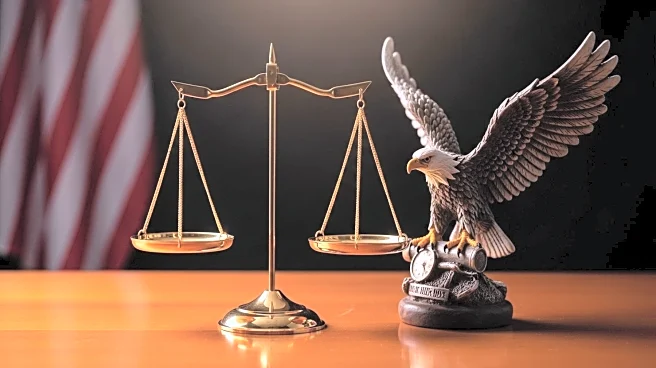What's Happening?
President Trump has announced plans to issue an executive order mandating voter identification for all U.S. elections. This move is part of a broader push by Trump to reform voting processes, which he claims are necessary due to alleged irregularities in the 2020 election. The proposed executive order would require all voters to present identification, with exceptions only for those who are very ill or serving in the military. This initiative is expected to face legal challenges, as the U.S. Constitution grants states the primary authority to regulate elections, with Congress also having the power to enact election laws. The president does not have explicit authority to regulate voting, which could lead to significant legal disputes.
Why It's Important?
The proposed executive order by President Trump could have significant implications for the U.S. electoral system. If implemented, it would mark a substantial shift in voting regulations, potentially affecting voter turnout and accessibility. Critics argue that such measures could disenfranchise certain voter groups, particularly minorities and low-income individuals who may face challenges in obtaining identification. Supporters, however, believe it could enhance the integrity of elections by preventing fraud. The legal challenges anticipated could lead to a landmark decision on the extent of presidential power in election regulation, impacting future administrations and electoral policies.
What's Next?
The announcement is likely to trigger immediate legal challenges from civil rights groups and state governments, who may argue that the executive order oversteps presidential authority. The courts will play a crucial role in determining the legality of the order, potentially setting a precedent for future executive actions on election laws. Political leaders and advocacy groups are expected to mobilize both in support of and opposition to the order, influencing public opinion and potentially affecting upcoming elections.











